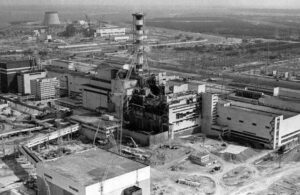
Dynamo defeated Ingulets with a score of 5: 0 at the NSC Olimpiysky stadium in Kyiv on Sunday, April 25, having received the championship title three rounds before the end of the season.
Zabarny and Besedin scored the first two goals against Ingulets. After the break, Tsyhankov scored two goals into the opponent’s goal. Popov scored the last fifth ball after a corner kick.
For the first time since 2016, Dynamo has won gold medals in the Ukrainian championship. Lucescu’s team has become unattainable for competitors in the table of the 23rd round of the Ukrainian Premier League.

GigaCloud cloud provider tops the ranking of IaaS providers in Ukraine presented by Molfar research agency.
The agency said on its website that GigaCloud received the highest marks for its flexible loyalty system, technical support and disk performance.
Parkovyi datacenter, DE-Novo, Tucha and Tetcloud also took the leading positions.
The study was conducted using mystery shopping, according to a GigaCloud release made available on Tuesday. A request was sent to 18 IaaS companies in Ukraine on behalf of an accountant of an audit company planning to switch to remote work: a cloud for access to 1C: Enterprise 8.3 (8.3.11.2867) for five employees; preliminary testing of the service.
When calculating the result, the response time to the first request, the quality of technical support (including customer focus and softskills), assistance with migration, price and a number of technical parameters were taken into account.
Points were awarded in five categories: prices, response speed and conditions of a commercial offer, how long they have to sign a contract, service testing and technical testing.
The final ranking included 10 companies that responded to the request and provided testing of the service.
As part of the terms of reference, common for all rating participants, the most affordable prices were at Cosmonova, United-DC and GigaCloud. De-Novo has the highest cost of the service.
De-Novo topped the response and terms of commercial offer together with GigaCloud, the second place was taken by Tetcloud, and Parkovyi datacenter was third.
In the category how long they have to sign a contract GigaCloud received the maximum points in the subcategory contract delivery speed.
GigaCloud was a leader in the service testing category, the second and third places in this category were taken by Parkovyi and Tucha.
All companies that took part in the rating declared 24/7 technical support. However, according to the study, seven out of 10 companies responded to requests at night from more than one hour to complete ignorance. The response time to the request turned out to be less than an hour at only three participants (GigaCloud, De-Novo and Tucha).

Western countries will continue to support Ukraine and will continue to provide their assistance to our country to quickly overcome the consequences of the Chornobyl disaster. The corresponding statement was made by the Ambassadors of Germany and Great Britain in Ukraine, as well as the Deputy Head of the U.S. Embassy in Ukraine during an online discussion of Kyiv Security Forum, organized by Arseniy Yatsenyuk’s Open Ukraine Foundation, the forum’s press service reported on Monday.
Thus, Ambassador Extraordinary and Plenipotentiary of Germany to Ukraine Anka Feldhusen noted that Germany continues to provide assistance to Ukraine even 35 years after the accident at the Chornobyl nuclear power plant.
She also stressed that the most famous international project on safety at the Chornobyl nuclear power plant is the construction of a new safe shelter over the old sarcophagus of the fourth power unit.
“This unique masterpiece of modern technology should protect the environment from the radioactive remnants of a destroyed reactor for at least a hundred years. Germany has directly contributed about EUR 100 million to the project, the total cost of which is more than EUR 2 billion. All these assistance measures can only try to slightly reduce the harm caused and alleviate the terrible suffering,” said Feldhusen.
In turn, British Ambassador Extraordinary and Plenipotentiary to Ukraine Melinda Simmons said that it is impossible to fully assess all the losses and negative consequences for humanity that were caused by the Chornobyl accident even 35 years after the accident.
The diplomat noted that today British engineers are involved in projects that guarantee the safety and stability of the Chornobyl zone, including a new safe shelter.
Simmons said that the total cost of the shelter is EUR 2.1 billion which is the largest international nuclear safety cooperation project supported by 40 countries, including Britain. This example of international cooperation in the field of nuclear safety shows that we have come a long way since 1986, and this gives us the hope for the future that such a tragedy will never happen again, said Simmons.
The United States also reminded of its support for Ukraine. Thus, deputy head of the U.S. Embassy in Ukraine, Joseph Pennington, said that the transformation of Chornobyl remains a long-term challenge, but Ukraine will not have to cope with it on its own.
He stressed that the United States, along with the rest of the international community, will continue to support Ukraine to ensure the future energy and nuclear security of not only this place, but Ukraine as a whole.
The diplomat noted that no other nuclear accident in history has been more serious in terms of costs and casualties like the Chornobyl accident and clarified that thanks to cooperation between Ukraine and the United States, significant success has been achieved in overcoming the consequences of the disaster.
According to Pennington, the United States is proud to become the largest donor to the New Safe Shelter project, which covers the site of the disaster of the reactor of the fourth Chornobyl power unit.

The United Nations Development Programme (UNDP) in Ukraine together with the International Labor Organization (ILO) presented a new joint pilot project called “Economic Empowerment of Women as a Response to the COVID-19 Crisis in Ukraine,” the communications department of the UNDP in Ukraine said.
It says that he project aims to contribute to a sustainable recovery of living standards of the COVID-19 crisis-affected population in Ukraine by promoting and supporting women’s economic empowerment. This is to be done by improving the relevant institutional frameworks, and increasing economic opportunities to improve women’s livelihoods. The project will be implemented in two target regions of Ukraine – Rivne and Sumy regions.
UNDP Resident Representative to Ukraine Dafina Gercheva, speaking at the launch of the joint project, said that it aims to address shortcomings that were exposed by the pandemic, and to scale up efforts to support vulnerable groups.
“The promotion of women’s economic empowerment is a crucial step that brings us closer to gender equality. I’m confident that this project will serve as a starting point for a great partnership, promoting equal economic opportunities, and supporting women’s economic resilience – despite the formidable challenges the current crisis is posing,” Gercheva said.
In turn, Director of the ILO Office for Central and Eastern Europe, Markus Pilgrim, noted that access to the labor market is a key issue in Ukraine – 36 percent of women between 15-64 years are outside the labor force.
“The pandemic sharpened the existing problems of the Ukrainian labor market. In times of crisis, entrepreneurship constitutes an important and sometimes unique opportunity for women to get out of poverty, but could also lead to further improvements – decent employment, gender equality and economic empowerment,” Pilgrim said.
It is noted that this project is all about promoting gender equality and women empowerment at all levels, including national, sub-national and community levels.
The joint project has a total of four activities with several sub-activities, holistically addressing the topic on the macro-, meso-, and micro levels. Besides several events to encourage inclusive policy dialogue, four local communities and two Business Membership Organizations will be supported to strengthen their portfolio to support women-led businesses.
The project would provide 100 women with training to advance their entrepreneurial skills by applying modules of the world’s largest entrepreneurship development program.
Afterwards, 25 women-entrepreneurs will receive mentoring assistance to certify their business or other related activities. Furthermore, 25 micro-, small and medium enterprises are selected to receive e-commerce training in the target regions.

The highest “red” level of epidemiological danger was registered in Kiev and 10 out of 24 regions of Ukraine, as of Sunday, which provides for the most stringent quarantine restrictions.
The table of indicator values on regions with a significant spread of coronavirus infection COVID-19 as of April 25 published on the website of the Ministry of Health of Ukraine says.
According to the Ministry of Health, Zhytomyr, Zaporizhia, Kiev, Lviv, Mykolaiv, Poltava, Sumy, Kharkiv, Khmelnytsky, Chernihiv regions are placed in the “red zone”.
The “orange zone” includes 9 regions out of 24: Vinnytsia, Volyn, Dnipropetrovsk, Donetsk, Kirovohrad, Luhansk, Rivne, Ternopil and Cherkasy regions.
The “yellow zone” includes five regions: Zakarpattia, Ivano-Frankivsk, Odesa, Kherson and Chernivtsi. The yellow level of epidemiological danger is basic at the national level.
Over the past two weeks, compared to April 11, Zakarpattia, Odesa and Chernivtsi regions have moved from the “red” to the “yellow” zones, that is, the epidemic situation in them has significantly improved, at the same time, Poltava region has moved from the “orange” to “red” zone – the situationhas become worse there.

The Ukrainian naval forces took part in the initial planning conference for the training of the Turkish Navy Dogu Akdeniz 2021 (Eastern Mediterranean – 2021), which is to be held in the Western Mediterranean at the end of the year, the press service of the Ministry of Defense reported.
According to the command of the Naval Forces of the Armed Forces of Ukraine, the participants of the event considered the issues of defining the general concept of training, agreeing on the previous composition of the forces, it is planned to involve. Representatives of the Ukrainian Navy discussed the format of the participation of the Ukrainian side, in particular, the involvement of officers of the Ukrainian Navy in the multinational headquarters of the exercises, as well as the training of officers onboard the Turkish Navy corvettes of the ADA class (MILGEM) during their training.
In connection with the COVID-19 pandemic, an inception planning conference for the aforementioned training took place online.